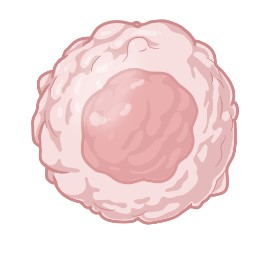
Sarcomas are a diverse group of rare and highly aggressive malignant tumors that originate from mesenchymal cells – the connective tissues of the body such as bone, cartilage, fat, muscle, blood vessels, and fibrous tissues. At Alfa Cytology, we are dedicated to studying the complex pathogenic mechanisms of sarcomas, conducting preclinical studies of different therapies.
Introduction to Sarcomas
Sarcomas account for only about 1% of all adult cancers, yet they pose a significant threat, particularly to pediatric and adolescent populations. These tumors display remarkable heterogeneity, with over 100 distinct histological subtypes identified to date. This diversity not only complicates accurate diagnosis but also demands tailored therapeutic approaches. Understanding the intricate pathogenesis of sarcoma is crucial in developing more effective interventions.
 Fig.1 Types of Sarcomas. (Damerell, V., et al., 2021)
Fig.1 Types of Sarcomas. (Damerell, V., et al., 2021)
Pathogenesis of Sarcomas
One of the hallmarks of sarcoma is the presence of recurrent chromosomal abnormalities, such as translocations, amplifications, and deletions. These genetic alterations can lead to the activation of oncogenes or the inactivation of tumor suppressor genes, ultimately disrupting the delicate balance between cell proliferation, differentiation, and death. For example, the fusion of the EWS and FLI1 genes in Ewing's sarcoma is a well-known driver of this aggressive malignancy.
 Fig.2 The mechanism of transcription factor EWS-FLI1 drives Ewing sarcoma. (Riggi, N., et al., 2014)
Fig.2 The mechanism of transcription factor EWS-FLI1 drives Ewing sarcoma. (Riggi, N., et al., 2014)
Current Therapeutic Strategies for Sarcomas
Sarcoma research is now using new therapies such as targeted therapy, immunotherapy and combination therapy.
Checkpoint Inhibitors
Merck is investigating the efficacy of its PD-1 inhibitor Keytruda as monotherapy and in combination with Incyte's IDO1 inhibitor epacadostat in patients with advanced STS and osteosarcoma.
Immunotherapy
Cancer vaccines and gene therapy are also attracting interest as potential treatments for STS. Several other small molecules and monoclonal antibodies are under active development in Phase I and Phase II trials.
Combination Therapy
Bristol-Myers Squibb's Opdivo + Yervoy combination therapy is undergoing Phase II clinical trials for the treatment of patients with previously treated metastatic sarcoma.
Our Services
This surge in market size underscores the increasing demand for effective and innovative therapy solutions for sarcomas. At Alfa Cytology, we are dedicated to advancing the understanding of sarcoma for our clients through comprehensive range of specialized research services. Our preclinical services encompass a wide range of capabilities, including cell line development, high-throughput screening, pharmacokinetic and pharmacodynamic evaluations, and advanced animal models.
At Alfa Cytology, we offer a comprehensive suite of services tailored to the unique needs of our clients. If you have any questions or would like to learn more about our services, please don't hesitate to contact us.
References
- Damerell, V., et al.; (2021). Molecular mechanisms underpinning sarcomas and implications for current and future therapy. Signal transduction and targeted therapy, 6(1), 246.
- Riggi, N., et al.; (2014). EWS-FLI1 utilizes divergent chromatin remodeling mechanisms to directly activate or repress enhancer elements in Ewing sarcoma. Cancer cell, 26(5), 668-681.
For research use only.
Related Services




 Fig.1 Types of Sarcomas. (Damerell, V., et al., 2021)
Fig.1 Types of Sarcomas. (Damerell, V., et al., 2021) Fig.2 The mechanism of transcription factor EWS-FLI1 drives Ewing sarcoma. (Riggi, N., et al., 2014)
Fig.2 The mechanism of transcription factor EWS-FLI1 drives Ewing sarcoma. (Riggi, N., et al., 2014)
